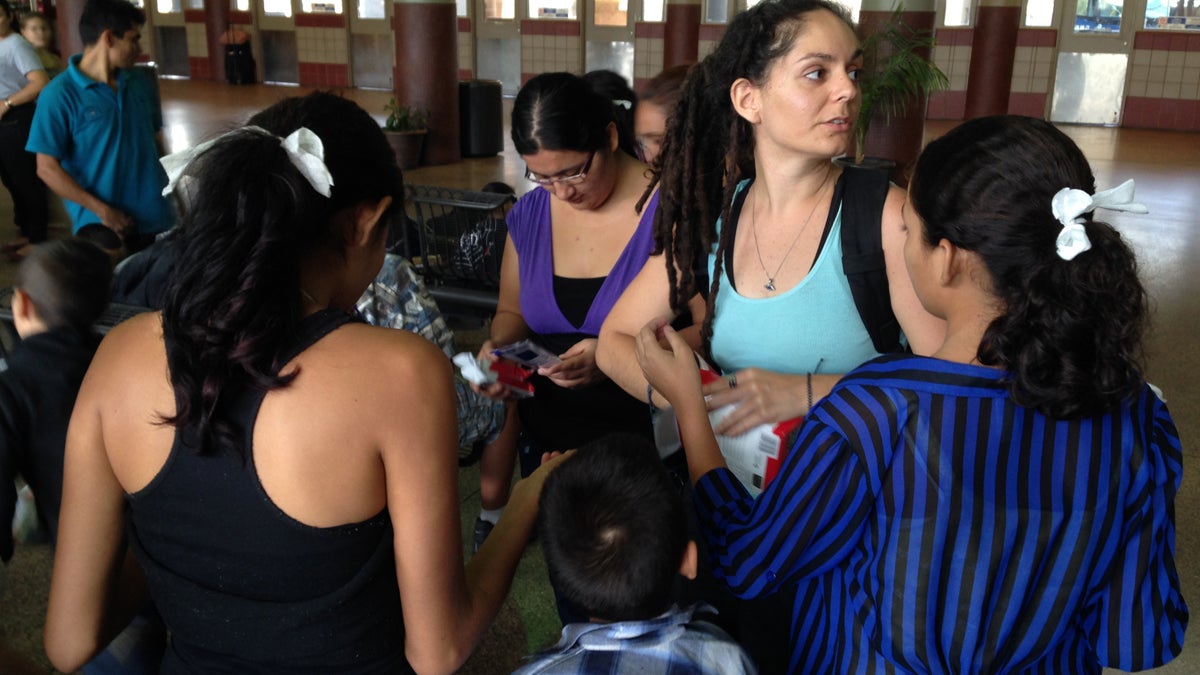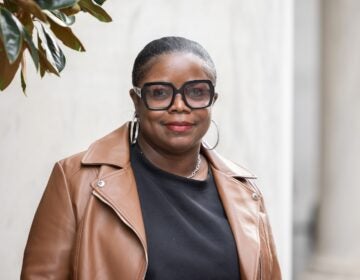Immigration agencies seek Philly attorneys to help represent kids from Central America
Listen
Volunteer Layal Rabat from the Phoenix Restoration Project brings water, food and diapers to Central American women and their children dropped off at the Greyhound bus station in Phoenix in May. (Valeria Fernández/AP Photo)
Ninety percent of unaccompanied minors in immigration court without a lawyer are ordered deported. With an attorney, more than 40 percent get to to stay in the U.S.
Immigrant services organizations in Philadelphia say it’s becoming increasingly difficult to find enough lawyers to represent unaccompanied children arriving in the country from Central America.
They’re reaching out to Philadelphia’s legal community to help the kids at the center of a growing political debate.
Liz Yaeger, who works at the nonprofit HIAS Pennsylvania, said the organization used to see “maybe five to 10 of these cases a year. Now we’re getting calls from 15, 20 people a month calling our office, asking for services.
“The numbers began growing rapidly in 2011 but reached a crisis point this year as thestream of immigrants began to overwhelm federal facilities.
Under federal law, children from countries not contiguous to the U.S., i.e. not Canada or Mexico, are usually released to a family member or foster parent while they go through immigration court proceedings.
Many tell Yaeger they left after they were told to join a gang or become a gang member’s “girlfriend.”
There are more gang members in El Salvador than there are police, said Nicole Boehner, one of the authors of this year’s U.N. Human Rights Commission report based on interviews with hundreds of children about why they left their homes to travel north.
“About 48 percent of children spoke about violence in communities, mostly related to gangs and sometimes drug cartels. Twenty percent of the kids we interviewed spoke about abuse in their homes or sexual abuse. Some of those children,” she said, “spoke of both, which is very troubling.”
While, traditionally, unaccompanied minors have usually been teen boys, many of the child migrants now arriving from Central America are young and female.
Nationalities Service Center attorney Steve Larin said new legal strategies are needed to defend these children. Current law makes it difficult to claim asylum based on a threat of gang violence.
However, Larin warned, “Many of these children are in extremely dangerous situations and it’s a real fear and a real possibility that they’ll be killed or persecuted if they return to their countries.”
He and his colleagues also expressed the need to preserve protections for the children under current federal law. One proposal in Congress would require children to go before an immigration judge within seven days. Lawyers say that would make it impossible to prepare a case.
WHYY is your source for fact-based, in-depth journalism and information. As a nonprofit organization, we rely on financial support from readers like you. Please give today.




